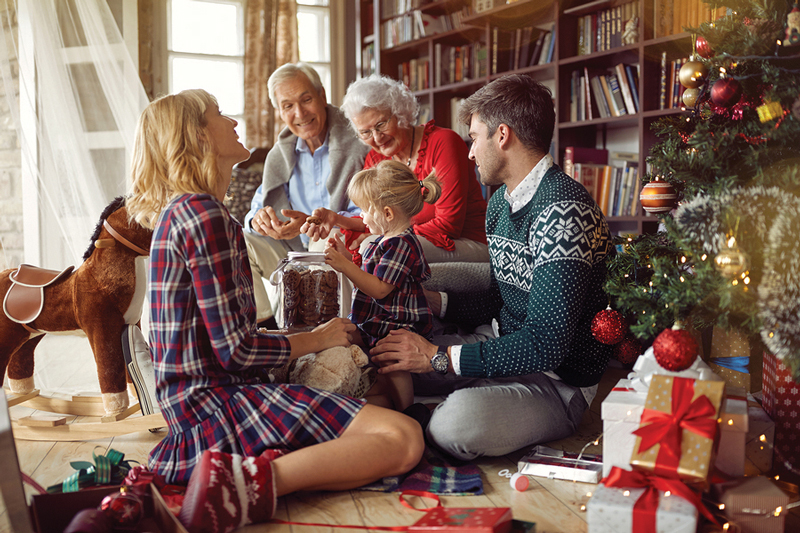For many families, the holidays are the only time they spend face-to-face. While phone calls and emails are a great way to connect, it can be hard to notice changes in a person’s appearance or home that could indicate they need help. If you visit older parents, grandparents or other relatives this holiday season, pay attention to the following:
1. The condition of the home.
Is it messy and more cluttered than usual? Is there spoiled food in the refrigerator or cupboards? Are bills not being paid on time? Are household goods being put away in the wrong place? Most importantly, you want to do everything to prevent falls.
- Are rugs and runners slip-resistant?
- Is there torn or loose carpeting?
- Is there adequate lighting?
- Is a person’s bed raised too high?
- Are there working smoke detectors in the home?
Even if someone isn’t hurt when they fall, they may become afraid of falling, which can have a big impact on their life. The Centers for Disease Control and Prevention has found the fear of falling causes people to limit their activities and cut back on social engagement. When someone is less active they become weaker physically, which increases their chances of falling. Research also shows falling just once doubles one’s chances of falling again.
2. The condition of the person.
Do they have unexplained weight loss? Are they wearing clothes that are dirty or inappropriate for the weather? Are they having trouble with toileting and basic hygiene such as showering and brushing their teeth? Are they having difficulty sleeping?
3. The person’s behaviors and personality.
Are they missing doctor appointments, religious services or other activities they’d usually attend? Are they forgetting to refill prescriptions or take medications as prescribed? Do they seem confused when you talk to them about topics they’d normally understand? Are they exhibiting any personality changes or mood swings?
If you answered yes to any of these questions, it could be a sign your family member needs extra help. At ComForCare Home Care we understand the challenges that may arise with aging. Home care can help older adults live independently in their own home and continue to do all the things they love.
By Neil Anand, Owner ComForCare. To learn more, visit: ComForCare.com/FairfieldCT or call (203) 612-8966 for a no obligation consultation. fairfieldct@comforcare.com.
Portions of this article were originally featured on blog.comforcare.com. ComForCare Home Care is a premier provider of in-home care with nearly 200 independently owned and operated locations in the U.S., Canada and the U.K., helping older adults live independently in their own homes and continue to do all the things they love. The home care company is committed to helping people live their best life possible and also offers special programs for people with Alzheimer’s disease and other forms of dementia.
